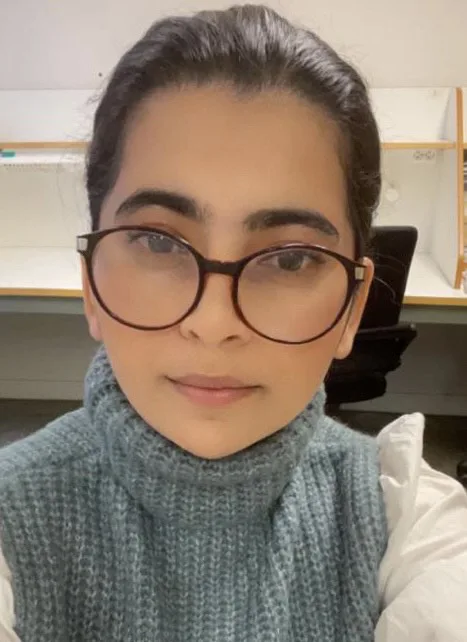Anustha Mainali works as a doctoral research fellow. Her tasks involves to organize, plan, and analyze research data, their outcome, and come up with new findings and opinions.
– I must show the ability and interest to learn every day, be a critical thinker, resourceful, and have resilience to confront challenges, says Mainali.
She thinks the position itself is exciting as it positively influences her future career prospects.
It has offered Mainali to generate new knowledge on the area she has chosen.
– I am discovering new things every day by developing new skills, meeting expertise and retaining new information from them. I also thrive a lot in my physical workplace with my positive supervisors and colleagues, which keeps me motivated every single day. It is a very exciting job where I seek greater depth of knowledge and continue to grow as a researcher, she explains.
How do you use your education at work?
– The knowledge from research, training and skills from my master’s program in International Community Health and earlier work experiences, has built and shaped my foundation as a researcher. I had an excellent opportunity to attend different courses in literature review, research methodologies, and protocol writing during my study period. All this I find very helpful at my current job.
How is a typical day at work?
– Every day is different. Some days are very hectic and others more quiet. The work situation is very independent, and I aim to find a balance with so many responsibilities.
Start your job search early
– The search and the application process for this position started already in 2017, before I moved to Norway. I applied to dozens positions with no replies, or with rejections, she says.
During Mainali master’s tenure at UiO, she developed a proposal for an article “Anxiety and depression in pregnant women who have experienced a previous perinatal loss: A case-cohort study from Scandinavia”.
– With the help of my supervisor Tricia Lynn Lois Larose, I applied for a grant at the "Landsforeningen uventet barned?d". It was a very competitive process, where only two projects were selected for the highest funding.
This thesis/manuscript were one of the two, and I got an opportunity to work as an independent researcher. In addition to this, I also got an opportunity to work as a teaching assistant in the Department of Community Medicine and Global Health, and used the chance to work, learn and network with many magnificent professors. When I was working and studying at the Department, I came over the announcement for my current PhD position and wrote an application.
I would say: Everything is going to work out at the end of day if you deeply believe in your consistent hard work and perseverance.
What are your best advice?for students who want your type of job?
- Be clear and stern about what you want to work on in your area of interest, and choose the supervisors accordingly
- Be reactive, engaged and adaptable
- Pump yourself and always stay positive
- Celebrate small wins, this make you always cheer up whatever may be the circumstances
– Always try to leverage your network. During our study period, it could feel like our network is way smaller than it really is. We are afraid to ask for help, sharing our area of interest and passion to our fellow friends, supervisors, alumni, contacts of university forum/groups – If you are open minded and take small steps to connect with others, you can turn these amazing connections into opportunities one day, Mainali says.
Anustha Mainali
- Study programme: International Community Health, M.Phil.
- Graduated: 2022
- Job title: Doctoral Research Fellow
- Employer: Adult Psychiatry Unit, Division of Mental Health and Addiction, Institute of Clinical Medicine, Faculty of Medicine
